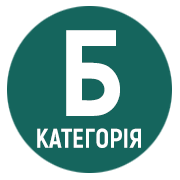FUNCTIONING OF GENERAL TEXT AND SPECIFIC DISCURSIVE UNITS IN THE MYKOLA ZEROV’S EPISTOLARY
DOI:
https://doi.org/10.31494/2412-933X-2019-1-8-186-195Keywords:
discourse, epistolary, epistolary text, letter, types of general text and specific discursive units.Abstract
The article is devoted to the important problem of modern linguistics as Discourse Studies. Relevance of research is to attempt terminological ordering and filling with a specific scientific content of those characteristics that structure the text and used in the analysis of discourse. It seems important to form a system of linguistic and stylistic operations to establish the patterns of constructing an epistolary text and study its operation in the time space of national discourse. The study attempts to describe the main types of discursive units in the epistolary of the famous Ukrainian poet, literary critic, translator Mykola Zerov. Writer’s correspondence is characterized by communicative, pragmatic, linguistic and stylistic positions. In the presented work discourse is positioned as a multi-parameterized structure marked by certain features, namely: the implementation of a communicative function; pragmatic implementation; the presence of a social context that gives an idea of the participants in the communication; time factor; designing mainly in the form of coherent text; the possibility of optional paralinguistic elements, etc. A discursive unit in the study is interpreted as any linguistic / textual unit that acquires communicative and pragmatic meaning in a socially parametric communication situation. As a result of the study, nine types of general-text and specific discursive units are identified, which are part of the surveyed Mykola Zerov’s epistolary texts, operating in a particular speech situation, under certain communicative conditions. These are directive constructions; narrative patterns; interrogative and exclamatory sentences; means of emotional condition creation and also the marks of social status, initial and final parts of epistolary texts; standard formulae of addressing, greeting, wish, congratulation, excuse, thank, invitation. The functional and structural features of discursive units are selected by classification typology criteria.
References
Арутюнова Н. Д. Язык и мир человека / Н. Д. Арутюнова. – М. : Языки русской культуры, 1999. – 896 с.
Бацевич Ф. С. Основи комунікативної лінгвістики / Ф. С. Бацевич. – К. : Академія, 2004. – 344 с.
Бенвенист Э. Общая лингвистика / Э. Бенвенист. – М. : Прогресс, 1974. – 447 с.
Дейк Т. А. ван. Язык. Познание. Коммуникация / Т. А. ван Дейк. – М. : Прогресс, 1989. – 310 с.
Дзюба І. З кастальських джерел краси. Микола Зеров // Зеров М. Вибрані твори / упор. Володимир Панченко. – К. : Смолоскип, 2015. – С. 9–63.
Зеров М. Листування // Зеров М. Вибрані твори / упор. Володимир Панченко. – К. : Смолоскип, 2015. – С. 639–672.
Кубрякова Е. С. О понятиях дискурса и дискурсивного анализа в современной лингвистике / Е. С. Кубрякова // Дискурс, речь, речевая деятельность: функциональные и структурные аспекты : сб. обзоров РАН ИНИОН. – М., 2000. – С. 7–25.
Макаров М. Л. Основы теории дискурса / М. Л. Макаров. – М. : Гнозис, 2003. – 280 с.
Павлик Н. В. Типологія дискурсивних одиниць в українському епістолярному мовленні : [монографія] / Н. В. Павлик. – Донецьк : ТОВ “Юго-Восток, Лтд”, 2007. – 177 с.
Серажим К. С. Дискурс як соціолінгвальне явище: методологія, архітектоніка, варіативність (на матеріалі сучасної газетної публіцистики) / К. С. Серажим. – К. : Націон. ун-т ім. Тараса Шевченка, 2002. – 392 с.
Harris Z. Discourse Analysis / Z. Harris // Language. – 1952. – Vol. 28, №17. – P. 1–30.






